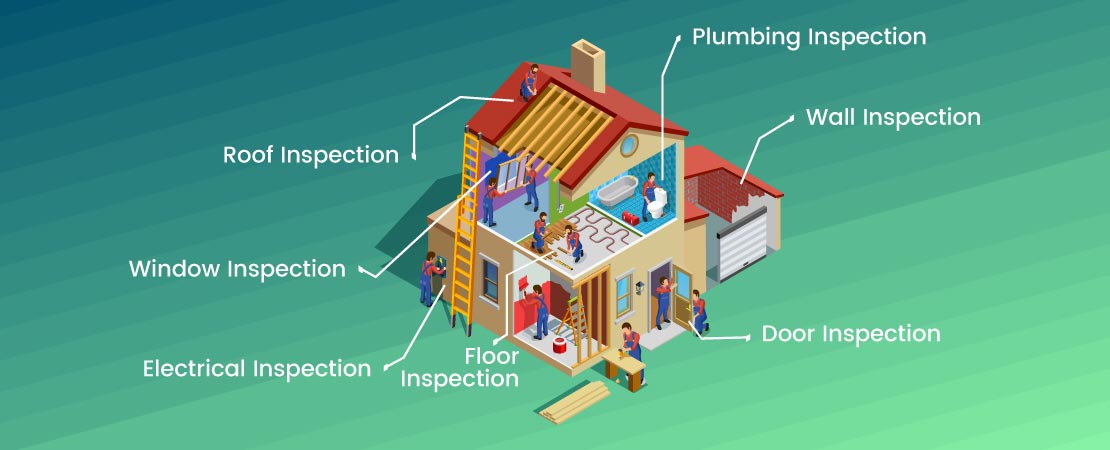A third-party inspection can be an important part of the home buying process, but it’s not necessary at every turn. Many factors come into play when deciding if you need to hire a third-party inspector or whether you should go with your gut feeling about certain aspects of the house on your own. Here are some questions to ask yourself about each potential problem area, along with potential solutions for any concerns that arise from these questions, in order to determine whether you should have an inspector look at them before closing on the home purchase.
1) If you’re Selling a Home
A third-party inspection is something to think about if you’re selling your home—you want to make sure there aren’t any surprises for potential buyers. But, if you’ve never hired an inspector before, how do you know when to use one? There are some telltale signs that it might be time for a home inspection: If you’re going through an estate sale or selling and buying another property at the same time, it’s always wise to have someone else take a look. The more complicated or expensive your purchase or sale is, however, it usually pays off in peace of mind to hire a professional inspector—especially if your credit score’s not up to par (which means less cash).
If you’re considering buying a house with foundation issues, the first thing you will need is a foundation professional to investigate the causes and proper cost estimation of foundation repair. They will be able to tell you what’s wrong, and how it can be fixed.
2) If You’re Buying a Home
A home inspection isn’t something most buyers think about—which is probably why many of them don’t do it. But before you sign on that dotted line, an inspector can be worth his weight in gold by detecting issues in your future home’s foundation, roofing, or electrical system (and more). An inspector will tell you what problems to expect and how much they’ll cost to fix; then you can decide whether you still want to buy. Note: Inspectors are licensed and insured professionals who are trained to look for signs of water damage, sagging floors, and other defects. To save money, ask your real estate agent if he or she recommends an inspector who works with agents (it’s easier to find one than you might think!). If not, get referrals from neighbors and friends.
3) For Maintenance Purposes
A third-party quality control service is something that many homeowners choose to have completed periodically, or on a yearly basis, in order to maintain their properties. This type of inspection will help you identify small issues before they become big problems—thereby helping you to save money and keep your home in good shape. However, there are certain types of real estate investors who choose not to get third-party inspections because they don’t want strangers knowing about their homes—if you fall into that category, it’s best if you opt for an annual inspection by someone within your own circle of trust instead. After all, it can be stressful enough having even familiar contractors working on your home—so doing so with complete strangers is simply not worth it.
Multifamily Property
A property with more than one rental unit is known as a multifamily property. Many investors focus on apartments, duplexes, and townhomes when investing in multifamily properties. Rentals that feature more than one unit are ideal for investors because of their high return potential; for example, each apartment could have its own renter and you would collect rent from each renter separately. While most investors don’t mind collecting rents from different people or families every month, they usually opt to reduce their workload by having only one person paying rent to them instead of two or three.
Commercial Real Estate
When buying commercial real estate, you’ll want to go with a third-party inspection of your building before finalizing your deal. This way, you’ll know exactly what condition your building is in and how much work it will need in order to become functional again. By hiring an expert to inspect your property before signing any contracts, you’ll also give yourself peace of mind that everything will be done correctly throughout the repairs—and if it won’t be completed properly, you can avoid making a deal that doesn’t align with your interests. Additionally, these inspections often save clients money by alerting them to damages that might have otherwise gone unnoticed until major issues arose down the line.
Conclusion
It can be easy to overlook home problems. After all, you’re living in your home and should know if something is wrong. But think about it: When was the last time you inspected your dryer vent? Or looked under your refrigerator for signs of wear and tear or rust on its frame? Our point is that inspections can help keep you from getting hurt by failing appliances, but if you don’t give them much thought, they won’t be used to their full potential. If at all possible, try to squeeze an inspection into your home buying timeline so that any issues can be discovered before they become a major problem.
